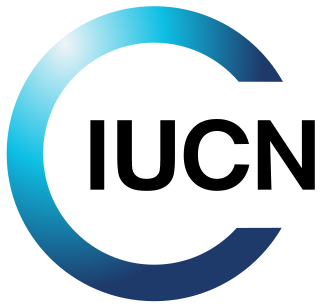Constraints
Difficulties included establishing direct contact with statistical agencies in a very few countries; these were overcome with UNICEF field support. While many offices were using project outcomes and networks for advocacy and for programme planning in optimal ways, some others were showing less interest, which hindered project outreach. In several countries no UNICEF offices existed in the field (e.g. Poland, Hungary, Slovenia, and Bulgaria); in these countries National Committees were involved in advocacy, often with excellent results. In some countries (e.g. Russia, Ukraine, Belarus) UNICEF offices were established only after 1997, when the Regional Office for CEE/CIS/Baltics was created.
The MONEE project has demonstrated that by creating a regional monitoring, analytical and advocacy facility, UNICEF can repeatedly and substantially increase awareness on how economic and social policies impact children, women and families and influence how others, including national governments, civil society organizations or the World Bank use their resources and develop their programmes and interventions in a great number of countries.

The United Nations Development Programme (UNDP) is the United Nations' global development network.

The International Union for Conservation of Nature is an international organization working in the field of nature conservation and sustainable use of natural resources. It is involved in data gathering and analysis, research, field projects, advocacy, and education. IUCN's mission is to "influence, encourage and assist societies throughout the world to conserve nature and to ensure that any use of natural resources is equitable and ecologically sustainable".

The poverty threshold, poverty limit or poverty line is the minimum level of income deemed adequate in a particular country. In practice, like the definition of poverty, the official or common understanding of the poverty line is significantly higher in developed countries than in developing countries. In 2008, the World Bank came out with a figure of $1.25 a day at 2005 purchasing-power parity (PPP). In October 2015, the World Bank updated the international poverty line to $1.90 a day. The new figure of $1.90 is based on ICP purchasing power parity (PPP) calculations and represents the international equivalent of what $1.90 could buy in the US in 2011. The new IPL replaces the $1.25 per day figure, which used 2005 data. Most scholars agree that it better reflects today's reality, particularly new price levels in developing countries. The common international poverty line has in the past been roughly $1 a day. At present the percentage of the global population living under extreme poverty is likely to fall below 10% according to the World Bank projections released in 2015, although this figure is claimed by scholars to be artificially low due to the effective reduction of the IPL in 2015.
Advocacy is an activity by an individual or group that aims to influence decisions within political, economic, and social systems and institutions. Advocacy can include many activities that a person or organization undertakes including media campaigns, public speaking, commissioning and publishing research or conducting exit poll or the filing of an amicus brief. Lobbying is a form of advocacy where a direct approach is made to legislators on an issue which plays a significant role in modern politics. Research has started to address how advocacy groups in the United States and Canada are using social media to facilitate civic engagement and collective action.

Trafficking of children is a form of human trafficking and is defined as the "recruitment, transportation, transfer, harboring, and/or receipt" of a child for the purpose of
slavery, forced labor and exploitation. This definition is substantially wider than the same document's definition of "trafficking in persons". Children may also be trafficked for the purpose of adoption.
The African Development Bank Group (AfDB) or Banque Africaine de Développement (BAD) is a multilateral development finance institution. The AfDB was founded in 1964 and comprises three entities: The African Development Bank, the African Development Fund and the Nigeria Trust Fund.
The AfDB's mission is to fight poverty and improve living conditions on the continent through promoting the investment of public and private capital in projects and programs that are likely to contribute to the economic and social development of the region.
The AfDB is a financial provider to African governments and private companies investing in the regional member countries (RMC). While it was originally headquartered in Abidjan, Côte d'Ivoire, the bank's headquarters moved to Tunis, Tunisia, in 2003, due to the Ivorian civil war; before returning in September 2014.
The Deutsche Gesellschaft für Internationale Zusammenarbeit (GIZ) GmbH or GIZ in short is a German development agency headquartered in Bonn and Eschborn that provides services in the field of international development cooperation. GIZ mainly implements technical cooperation projects of the Federal Ministry for Economic Cooperation and Development (BMZ), its main commissioning party, although it also works with the private sector and other national and supranational government organizations on a public benefit basis. In its activities GIZ seeks to follow the paradigm of sustainable development, which aims at economic development through social inclusion and environmental protection. GIZ offers consulting and capacity building services in a wide range of areas, including management consulting, rural development, sustainable infrastructure, security and peace-building, social development, governance and democracy, environment and climate change, and economic development and employment.
The Dominican Republic has achieved impressive increases in access to water supply and sanitation over the past two decades. However, the quality of water supply and sanitation services remains poor, despite the country's high economic growth during the 1990s.
Water supply and sanitation in Indonesia is characterized by poor levels of access and service quality. Over 40 million people lack access to an improved water source and more than 110 million of the country’s 240 million population has no access to improved sanitation. Only about 2% of people have access to sewerage in urban areas; this is one of the lowest in the world among middle-income countries. Water pollution is widespread on Bali and Java. Women in Jakarta report spending US$11 per month on boiling water, implying a significant burden for the poor.

Access to water supply and sanitation in Ethiopia is amongst the lowest in Sub-Saharan Africa and the entire world. While access has increased substantially with funding from foreign aid, much still remains to be done to achieve the Millennium Development Goal of halving the share of people without access to water and sanitation by 2015, to improve sustainability and to improve service quality.

Established in 2001, the Economic Development and Research Center is a Yerevan based non-profit, nonpartisan think-tank dedicated to addressing economic and social challenges and contributing to public policy discourse in Armenia.
The Joint Monitoring Programme (JMP) for Water Supply and Sanitation by WHO and UNICEF is the official United Nations mechanism tasked with monitoring progress towards the Sustainable Development Goal Number 6 (SDG6) since 2016.
DevInfo is a database system developed under the auspices of the United Nations and endorsed by the United Nations Development Group for monitoring human development with the specific purpose of monitoring the Millennium Development Goals (MDGs), which is a set of Human Development Indicators. DevInfo is a tool for organizing, storing and presenting data in a uniform way to facilitate data sharing at the country level across government departments, UN agencies and development partners. It is distributed royalty-free to all UN member states. It is a further development of the earlier UNICEF database system ChildInfo.
Center for Economic and Social Development, or CESD; in Azeri, İqtisadi və Sosial İnkişaf Mərkəzi (İSİM) is an Azeri think tank, non-profit organization, NGO based in Baku, Azerbaijan. The Center was established in 2005.

Hivos is a development aid organization, headquartered in The Netherlands. Hivos provides financial support to organizations working in Africa, Latin America and Asia, it provides advocacy and it supports knowledge sharing in particular in the field of social change, digital activism and rural innovations.

UCW: Understanding Children's Work is a programme to combat child labour. The 1997 Amsterdam Conference on Combating the Most Intolerable Forms of Child Labour and the 1997 Oslo International Conference on Child Labour both drew attention to the urgent need for concerted global action to end child labour, and called for an expansion of information gathering, statistics and empirical research to help inform this action.
The inter-agency programme, Understanding Children’s Work (UCW), was initiated by the International Labour Organization (ILO), UNICEF and the World Bank as one of the responses to the recommendations of the Amsterdam and Oslo conferences.
Through a variety of research activities, the UCW Programme supports the partner agencies in improving statistical information on child labour in its various dimensions – its nature, extent, causes and consequences – as well as on what policy approaches are most effective in addressing it.
The Social Protection Floor (SPF), is the first level of social protection in a national social protection system. It is a basic set of social rights derived from human right treaties, including access to essential services and social transfers, in cash or in kind, to guarantee income security, food security, adequate nutrition and access to essential services.
Oxford Policy Management (OPM) is an international development consulting firm]] which aims to help low- and middle-income countries achieve growth and reduce poverty and disadvantage through public policy reform.

The Republic of Armenia was admitted into the United Nations on March 2, 1992. Since December 1992 when UN opened its first office in Yerevan, Armenia signed and ratified many international treaties. There are fifteen specialized agencies, programs and funds in the UN Country Team under the supervision of the UN Resident Coordinator. Besides, the World Bank (WB), International Finance Corporation (IFC) and International Monetary Fund (IMF) have offices in the country.
The focus is drawn to the attainment of the Millennium Development Goals (MDGs) stipulated by the Millennium Declaration adopted during the Millennium Summit in 2000. The MDGs have simulated never before practiced actions to meet the needs of the world's poorest. As the MDG achievement date of December 2015 draws closer a new set of global sustainable development goals is consulted worldwide, to be adopted by the UN General Assembly in September 2015. Armenia was included in the initial group of 50 countries to conduct national consultations on the global Post-2015 development agenda.










